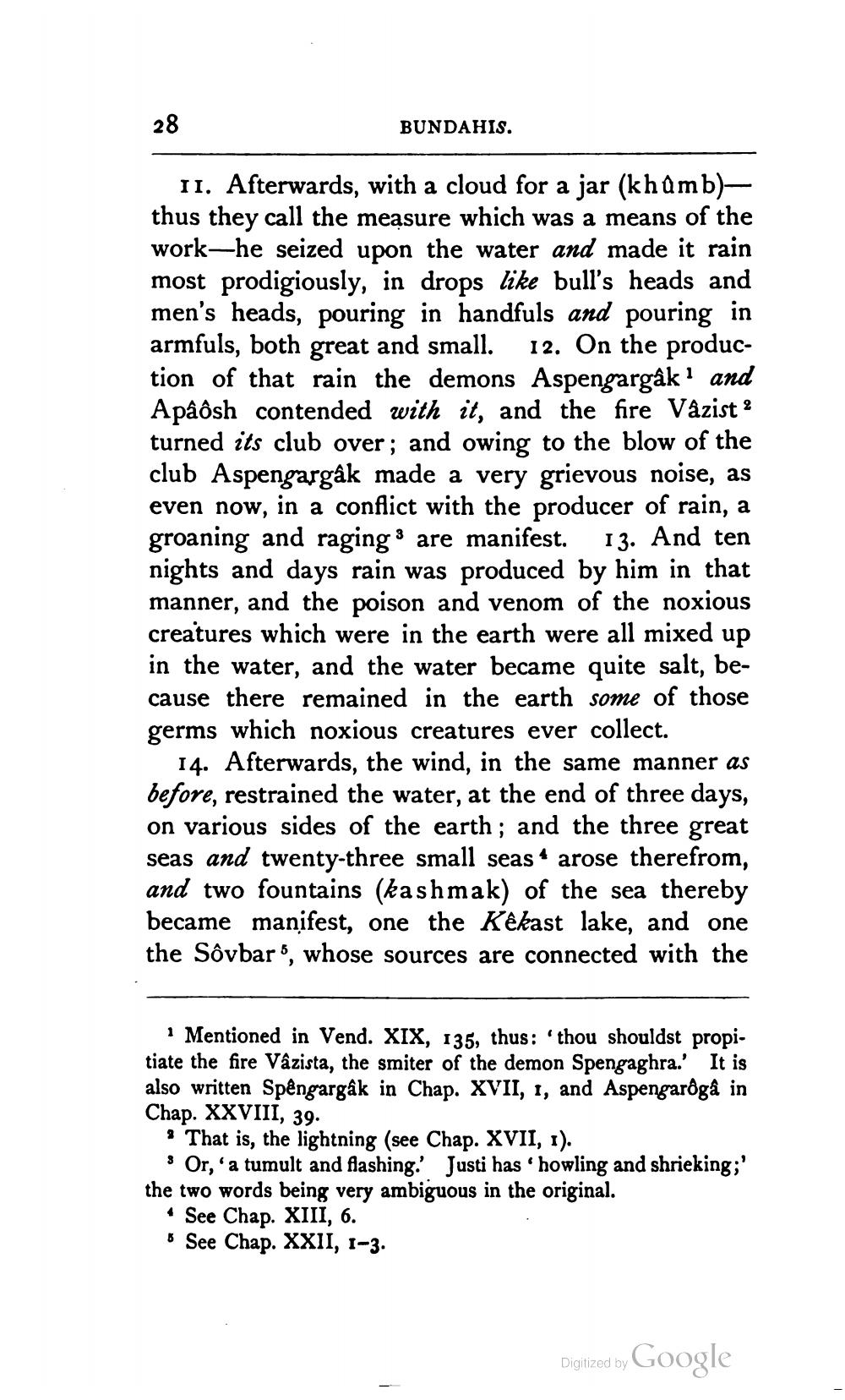________________
BUNDAHIS.
11. Afterwards, with a cloud for a jar (khamb)thus they call the measure which was a means of the work—he seized upon the water and made it rain most prodigiously, in drops like bull's heads and men's heads, pouring in handfuls and pouring in armfuls, both great and small. 12. On the production of that rain the demons Aspengargâkand Apâôsh contended with it, and the fire Vázist ? turned its club over; and owing to the blow of the club Aspengargâk made a very grievous noise, as even now, in a conflict with the producer of rain, a groaning and ragings are manifest. 13. And ten nights and days rain was produced by him in that manner, and the poison and venom of the noxious creatures which were in the earth were all mixed up in the water, and the water became quite salt, because there remained in the earth some of those germs which noxious creatures ever collect.
14. Afterwards, the wind, in the same manner as before, restrained the water, at the end of three days, on various sides of the earth; and the three great seas and twenty-three small seas - arose therefrom, and two fountains (kashmak) of the sea thereby became manifest, one the Kêkast lake, and one the Sôvbar 5, whose sources are connected with the
Mentioned in Vend. XIX, 135, thus: 'thou shouldst propitiate the fire Vâzista, the smiter of the demon Spengaghra.' It is also written Spêngargâk in Chap. XVII, 1, and Aspengarðgå in Chap. XXVIII, 39. . That is, the lightning (see Chap. XVII, 1).
Or,'a tumult and flashing. Justi has 'howling and shrieking;' the two words being very ambiguous in the original.
• See Chap. XIII, 6. * See Chap. XXII, 1-3.
Digitized by
Digitized by Google




